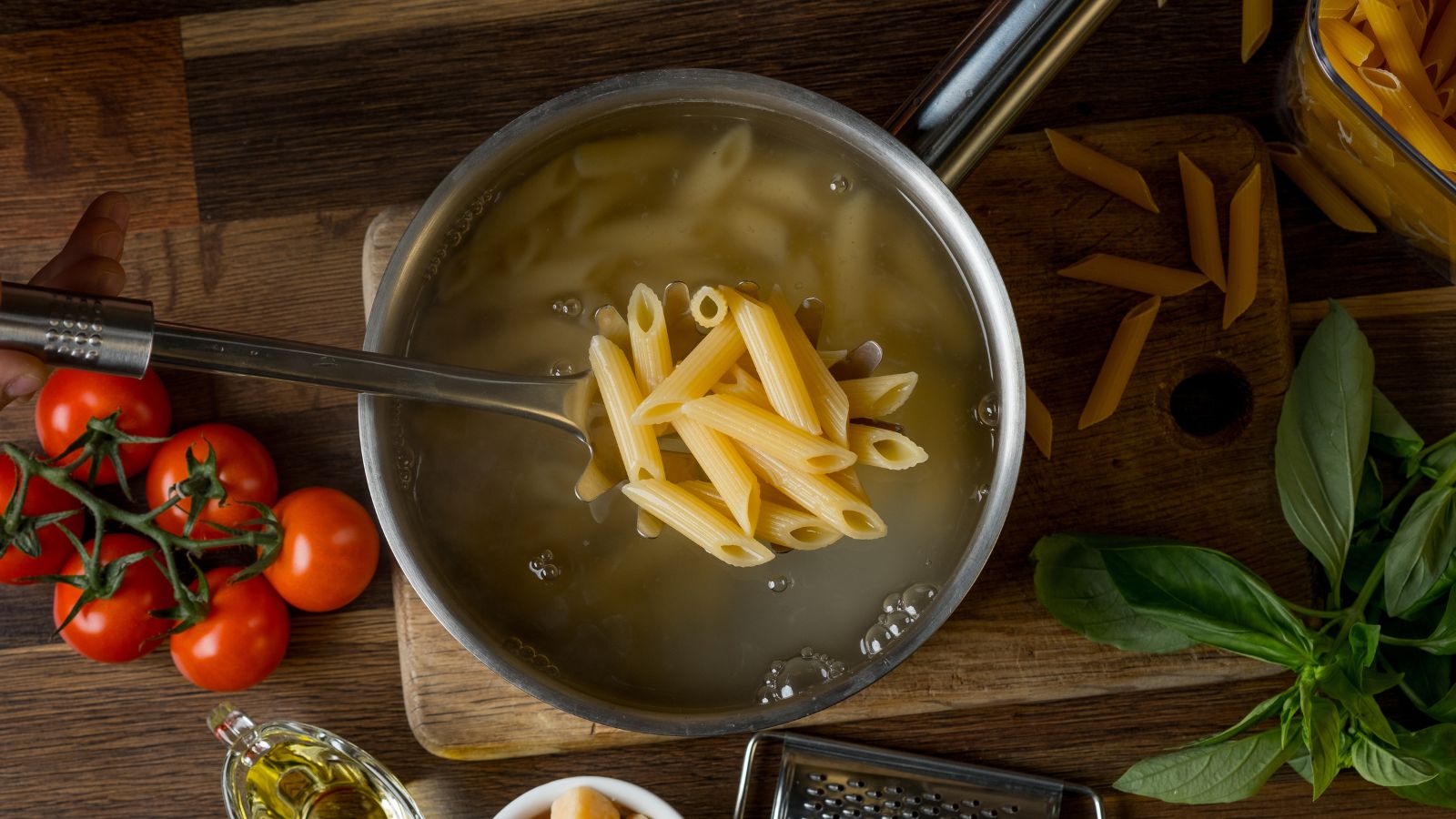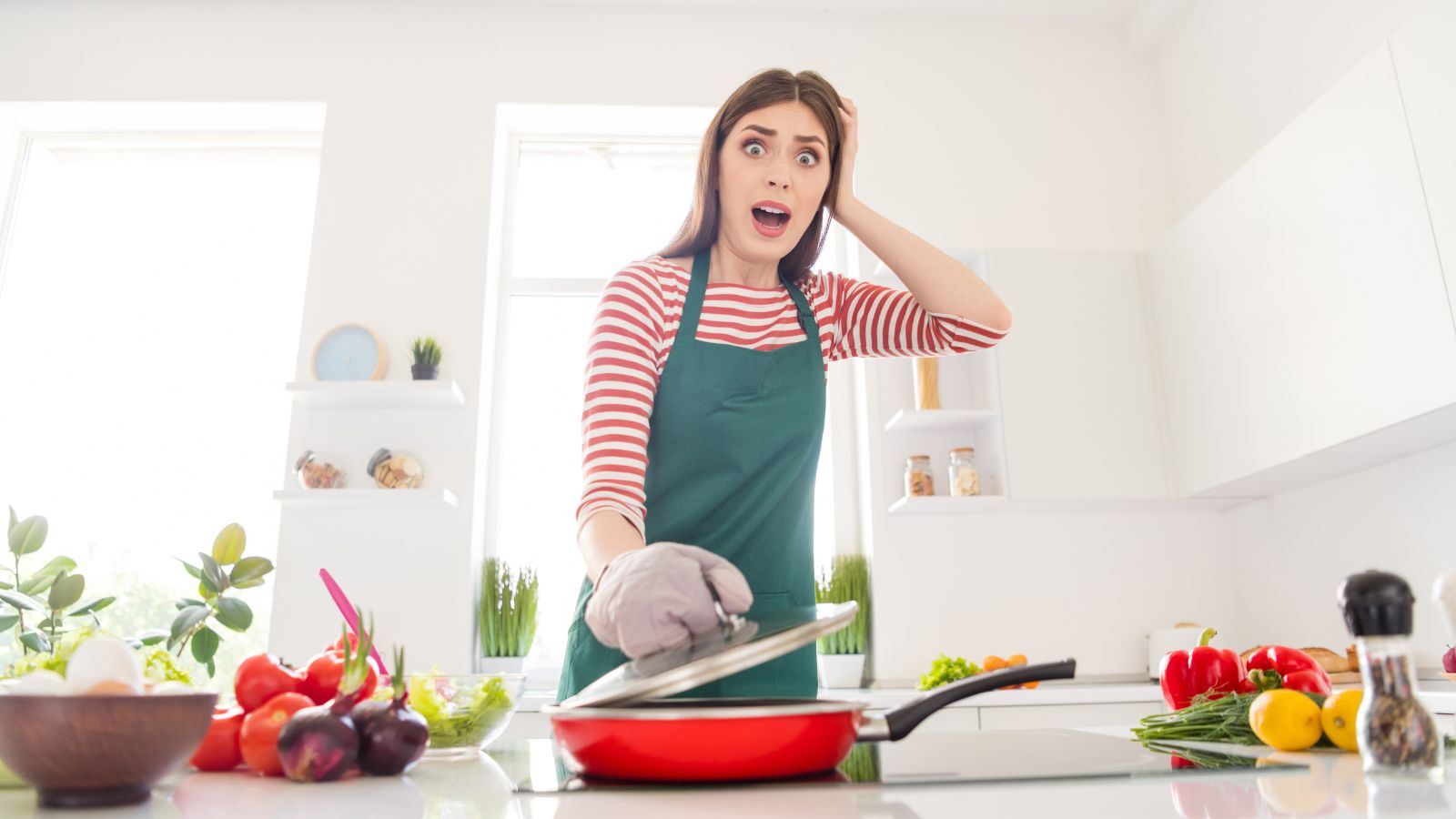There’s no denying that cooking can be difficult to master, but it’s not always as technical as you might think. The problem many people have is that there are a lot of small mistakes they make that give their dishes a suboptimal taste. Today, we’ll be sharing some of these cooking mistakes that are probably ruining your home-cooked meals.
Not Letting Meat Rest

Another common cooking mistake that will no doubt ruin your meals is if you cut into meat immediately after cooking. This causes the juices to run out, resulting in dry, less flavorful meat. What you should do instead is let your meat rest for at least 5-10 minutes before slicing, helping the juices redistribute, ensuring a more succulent and tasty dish.
Ignoring Salt in Baking

If your baking always seems to taste bland, ask yourself whether you’re using enough salt. Salt does wonders for the flavor of baked goods and helps to balance out sweetness. Omitting it from your recipes can leave your desserts tasting flat and overly sweet, so don’t be fooled into thinking that salt is only for savory dishes.
Cooking Pasta in Too Little Water

When you cook pasta, you need to give it plenty of water to boil evenly and prevent sticking. Using too little water can result in clumpy, unevenly cooked pasta, but thankfully, this is an easy mistake to correct. Just use a large pot filled with ample water, salt it generously, and ensure the pasta has plenty of water to move around in.
Not Preheating the Oven

It’s absolutely crucial to preheat the oven before cooking something, because, as The Guardian explains, you’ll never achieve the right texture and doneness otherwise. Skipping this step can also result in uneven cooking, leaving your food either overcooked or undercooked. So, always give your oven enough time to reach the desired temperature before putting anything inside it.
Overcrowding the Pan

These days, a lot of people recommend “one-pot recipes,” but while these may sound convenient, they’re likely causing you problems. When you put too much food in a pan, it can cause the ingredients to steam rather than sear. This prevents the development of a nice crust and can make your dish soggy.
Using the Wrong Oil

An important aspect of cooking to understand is that different oils have different smoke points. Using an oil with a low smoke point, such as olive oil, for high-heat cooking can result in burnt flavors. So, you need to choose oils like canola or avocado oil for high-heat applications to avoid this mistake, keeping your food tasting fresh.
Using Dull Knives

Using a dull knife requires more force to cut, so it’s only a matter of time until you hurt yourself. They also damage the food by crushing it instead of making clean cuts, so try to keep your knives sharp to ensure safer, more efficient chopping and slicing. If you can’t seem to sharpen them, it’s time to buy a new set of knives.
Overmixing Batter

When cooking with batter, it’s a big mistake to overmix it, regardless of whether you’re cooking cakes, muffins, or pancakes. Doing so can develop gluten and result in tough, dense baked goods, which nobody wants. Mix for just long enough until the ingredients are combined to ensure a light and fluffy texture, and you’ll be enjoying your homemade goods in no time.
Not Tasting As You Go

Believe it or not, failing to taste your food as you cook is perhaps the biggest mistake of all newbie chefs. It can lead to serious seasoning mistakes that are hard to fix in the end, so don’t be scared to taste your food as you go. It also helps you better understand how salt, acid, and spice levels work in cooking, teaching you as you go along.
Boiling Instead of Simmering

There’s a big difference between boiling and simmering, and you might not realize this. Boiling is much more intense, and it can be too much for delicate foods like soups and stews, leading to overcooking and a loss of flavor and texture. Meanwhile, simmering should show very light, occasional bubbles, and this will allow flavors to develop and meld together gently..
Skipping Preparation

One of the most common mistakes among home chefs is not preparing their ingredients in advance. They might try to cut corners by chopping veg as something else is cooking, but this could easily throw your timing off. You’ll end up rushing your chopping or boiling something for too long, ruining your meal completely. Do all your prep first, and you can make sure the recipe is followed perfectly.
Not Measuring Ingredients

It might be tempting to just throw in ingredients as the TV chefs do, but this isn’t realistic for a beginner. You need to measure your ingredients accurately, especially in baking, where precision is key. Eyeballing ingredients can lead to inconsistencies and unpredictable results, so start being more careful, and you’ll certainly see improvements.
Using Cold Ingredients

If you use cold ingredients when you cook, this could negatively affect the texture and consistency of your dishes, particularly in baking. For example, using cold butter in a batter can result in uneven mixing. So, it’s wise to let most ingredients come to room temperature before using them, making for much better incorporation and smoother results.
Neglecting to Deglaze

Another mistake that new chefs get confused about is forgetting to deglaze a pan after searing meat or vegetables. If you don’t do this, you’ll miss out on so much depth and complexity in your sauces and gravies. So, pour a liquid like wine, broth, or vinegar into the hot pan and scrape up the fond before incorporating it into your sauce. Trust us–this will work wonders.
Not Seasoning Layers

A lot of people make the mistake of only seasoning at the end of cooking, which will usually result in unevenly flavored dishes. You need to start adding salt and spices at different stages of cooking, ensuring that flavors penetrate and develop fully. Taste and adjust seasoning as you go, and you’ll learn a lot about finding a balance, too.
Rushing the Cooking Process

Cooking should never be a race, so stop copying the hectic practices of TV chefs and take your time. Rushing through steps, especially in recipes that require slow cooking or resting, can compromise the final outcome, so allow plenty of time for processes like simmering, baking, or marinating, making sure that your flavors develop properly and textures achieve the desired quality. It’s not a race.
Ignoring the Importance of Acid

Even some intermediate chefs don’t understand the importance of acidic ingredients, such as lemon juice, vinegar, or tomatoes. This isn’t just about their own flavors; they brighten and balance the other flavors in a dish. Ignoring this fact can leave your food tasting flat, so experiment with a splash of different acids across different dishes, and you’ll soon understand the effects.
Overcooking Vegetables

Nobody likes biting into some vegetables within a dish only to discover they’re mushy and bland. This happens when you overcook them, and it strips them of their vibrant colors and nutrients, too. So, aim to cook your vegetables just until they are tender-crisp, helping to preserve their flavor, texture, and nutritional value.
Not Using a Thermometer

Perhaps the most common mistake of all, even among the most experienced of chefs, is attempting to guess the doneness of meat, which will consistently lead to overcooked or undercooked dishes. All you need to avoid this mistake is a meat thermometer, allowing you to test multiple spots in the meat and know exactly when it’s cooked to perfection.

